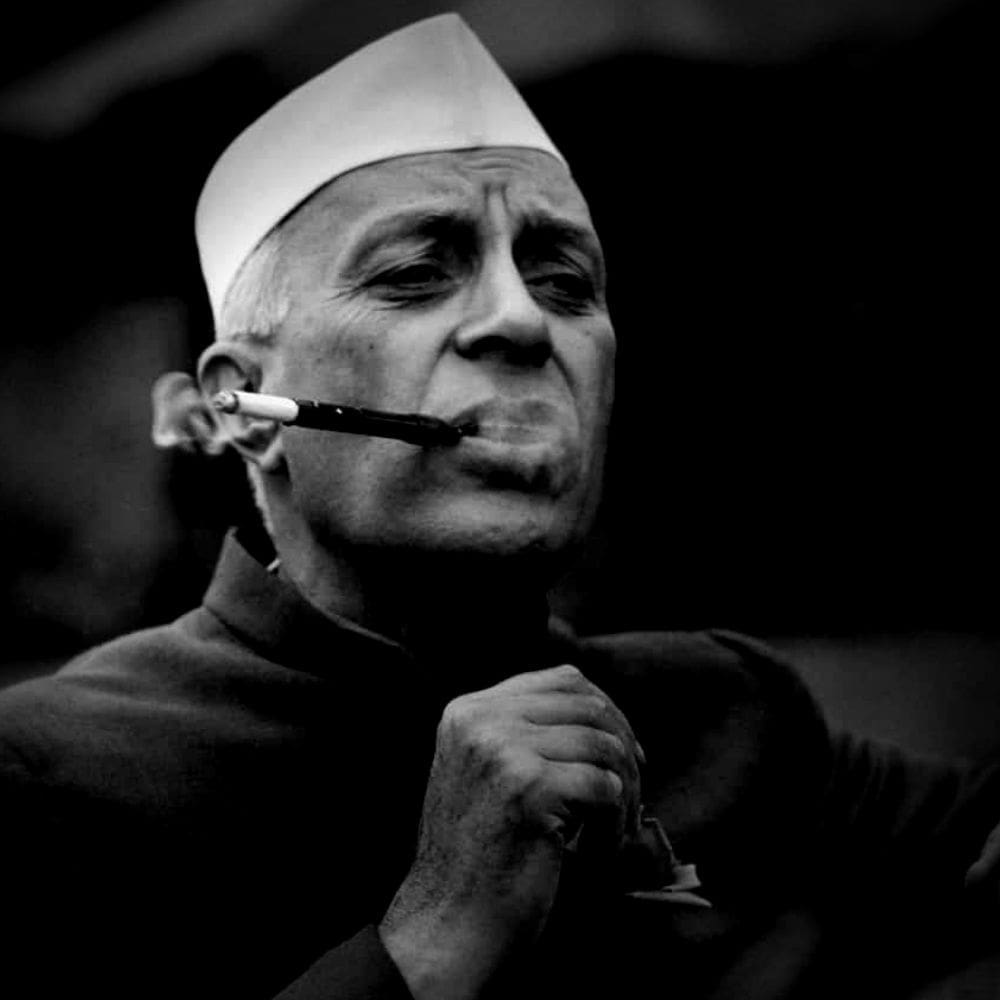ARROGANT, CONCEITED & FULL OF HUBRIS
Nehru regarded himself as a great academic and intellectual; a highly knowledgeable individual; an internationalist and an expert in international affairs; a liberal modernist rational of ‘scientific’ temperament and thinking; and someone who knew what was best for the Indian economy, and indeed for all aspects of the Indian polity and people. Not just that, he was conceited enough to look down upon most as lesser beings, labelling them in a derogatory way, or using choice adjectives for their remarks or thinking —‘childish’, ‘juvenile’, and so on. The irony is that if one studies in depth the various actions and the net result of those actions of Nehru in various fields, one finds that Nehru actually had much to be modest and apologetic about; and little to be conceited about—his naïveté in statecraft was astounding: the blunders recounted in this book speak for themselves.
Many wonder what made Nehru so full of hubris? It could certainly not have been on account of his academics or his earnings or his books. If he knew good English, so did many others. If he was educated in England, so also many others. If he was westernised, so were many others. If he had participated in the Freedom Struggle, so had thousands, and many had actually sacrificed much more. If he thought he was exceptionally intelligent and knowledgeable and a great leader, how come he made so many blunders—all major, with severe long term adverse consequences for the country. In fact, Nehru was able to dominate only because while he was still active in politics, almost all his equals and superiors and potential rivals died—Gandhi, Subhas Bose, Patel, Ambedkar.
His arrogance came in the way of others sharing their opinions with him freely—they were afraid of his temper. This prevented him from heeding sane advice of others and doing course-correction even when things were going down-hill. He made blunder after blunder with no one daring to counsel him.
While in England he wrote to his father, Motilal, in July 1910: “My chief reason for wishing to go to Oxford is Cambridge is becoming too full of Indians!” Such airs from the grandson of the policeman, Gangadhar Nehru! Nehru’s white skin, his education in Eton and Cambridge, his westernised upbringing, and his identification with the English mores perhaps made his feel he was entitled to be as arrogant as them, and as contemptuous towards the native Indians.
In a conference of Asian-African countries in 1955, the then PM of Sri Lanka, John Kotelawala, took some pot-shots at communism and Soviet colonialism. Nehru later accosted him and asked him in an admonitory tone why he had not shown his speech to him beforehand. Pat came the reply from John Kotelawala to Nehru, “Why should I? Do you show me yours before you give them?’’
Sankar Ghose in his ‘Jawaharlal Nehru, a Biography’ quotes Zhou Enlai’s comment of October 1964, about five months after Nehru’s death: “I have met many leaders of the world…I met Khrushchev. I met Chiang Kai- shek, I’ve met American generals. But I have never met a more arrogant man than Nehru. I am sorry to say this, but this is true.”
In a lighter vein, it is also said that Zhou Enlai was in fact so highly cheesed off with Nehru’s condescending behaviour that he inflicted India- China war to avenge it! During his talks with Kissinger, he was reported to have said that Nehru had become so cocky that China decided to put down his cockiness.
Nehru had visited the US in 1961. Wrote Kuldip Nayar: “Kennedy organised a breakfast meeting between Nehru and top US economists and foreign policy experts. Nehru was late for the meeting and generally monosyllabic in his responses. The breakfast ended in 20 minutes. Some of them reported this to Kennedy who remarked in the presence of his aides that Nehru had ‘lived too long’.”
Says Dalai Lama in his autobiography ‘Freedom in Exile’:
“I [Dalai Lama] then explained [to Nehru] that I had not originally intended to seek India’s hospitality [feeling let down by Nehru’s attitude] but that I had wanted to establish my Government at Lhuntse Dzong. Only the news from Lhasa had changed my mind. At this point he [Nehru] became rather irritated. ‘The Indian Government could not have recognised it even if you had,’ he said. I began to get the impression that Nehru thought of me as a young person who needed to be scolded from time to time. During other parts of the conversation he banged the table. ‘How can this be?’ he asked indignantly once or twice. However, I went on in spite of the growing evidence that he could be a bit of a bully…”
Many British found Nehru to be vain and supercilious: Viceroy Linlithgow and Wavell gave him no importance. In their dealings after Indian independence, the Americans too found Nehru to be arrogant.
MJ Akbar in ‘Nehru: The Making of India’ writes about an episode in the pre-independence period of a number of poor villagers from the villages near Allahabad approaching him to verify their actual extremely pathetic condition first-hand. Nehru was not particularly enthusiastic about taking up the mission, particularly in the hot summers. However, “He was touched when he learned that hundreds of ill-clad villagers had built roads for him overnight so that his car could take him to the innermost recesses of rural India; and saw the eagerness with which they physically lifted his car when it got stuck in the soft mud. After all, he was still an Indian sahib in a hat and silk underwear.”


